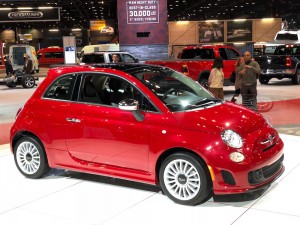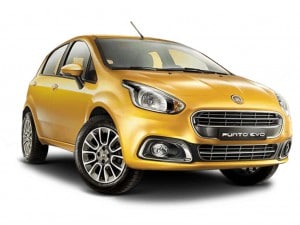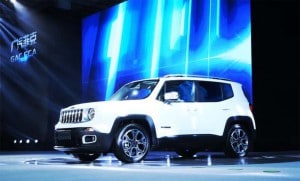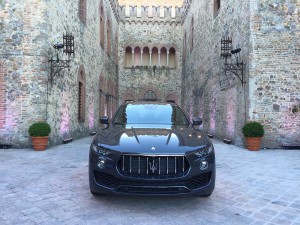
As Fiat Chrysler Automobiles prepares for life beyond its founding chief executive, CEO Sergio Marchionne is expected to announce major shifts in the automaker’s product and manufacturing strategy, according to several reports.
During a June 1 meeting meant to reveal FCA’s next five-year plan, the 65-year-old executive reportedly will announce that the Fiat brand will abandon two of its base models, the Punto and Mito, while shifting emphasis to more up-market models. The automaker also will put more emphasis on its Jeep brand which, Marchionne said during the Detroit Auto Show earlier this year, could help Fiat Chrysler double its earnings during the next five years.

One of the key questions hanging over the Euro-American automaker may not be resolved during a meeting bringing together analysts and journalists from around the world: who will replace Marchionne as CEO? He has dropped hints that his successor will come from FCA’s current top management ranks, which means no women or outsiders are in the running.
The decision to abandon the Fiat Punto and Mito models likely will surprise few observers considering the challenges facing manufacturers who want to remain in entry-level segments using European-made products. Labor costs have made that increasingly difficult. But another challenge is the broader reshaping of the global automotive market, with buyers around the world starting to move in the same direction as those in the U.S., away from conventional passenger cars and into more expensive sport- and crossover-utility vehicles.
(FCA enjoys record Q1 results as plan falls into place. Click Here for the story.)

Nonetheless, the move could be controversial, noted the Bloomberg wire service, pointing out that the Fiat brand, founded in 1899, has historically made cars that “ordinary consumers could afford.” That was a key factor in helping rebuild Italy’s economy in the wake of World War’s II devastating destruction.
But Marchionne appears to want to move away from segments he sees are at risk of “being commoditized.”
Among the changes Bloomberg highlighted, one of Fiat’s most important plants, near Turin, will retool and begin producing both Maserati and Jeep SUVs. The Italian luxury brand is in the midst of a revival effort and has scored significant growth with the addition of its first-ever SUV, the Levante. A second, smaller utility vehicle has been in the works and will come to market around the end of the decade.
Utes are also providing a foundation for FCA’s growth plans for the slightly less exclusive Alfa Romeo brand, which introduced its first ute, the Stelvio, a year ago. A larger SUV may be introduced during the five-year meeting, according to sources, as well as a coupe version of the Giulia sedan.
Jeep, meanwhile, has more than doubled its global volume during the past five years and is aiming to top 2 million annual sales as FCA’s current five-year plan is completed. The traditionally American brand only recently started to reposition itself as a global alternative and it now operates factories in a number of countries, including China, Brazil and Italy.

FCA isn’t entirely walking away from small, inexpensive cars. It will continue to offer the subcompact Panda, but the preliminary five-year plan appears to call for that model to be moved to a factory in Poland, with its current plant, near Naples, Italy, converted to Jeep production.
Another significant change, according to sources quoted by Bloomberg, will see FCA begin to phase out the use of diesels in its remaining small models, shifting instead to hybrids that can better meet Europe’s increasingly stringent emissions and fuel economy regulations. FCA wouldn’t be alone. Volkswagen and other manufacturers are also de-emphasizing diesels in favor of electrified powertrains.
(Click Here for details about FCA’s plans to spin off Magneti Marelli.)
One lower-end model likely to remain in the Fiat portfolio will be the 500 minicar. It is the foundation of Fiat’s presence in a number of markets, including the U.S., though American demand has lagged FCA’s expectations ever since the brand made its American comeback early in the decade. With sales tumbling another 19%, to just 26,492, last year, there has been intense speculation the Fiat brand might be pulled from the U.S. entirely.
Marchionne has raised concerns frequently about the challenges of making money in the automotive market and, during a recent call to discuss FCA’s earnings, referred to the “incredibly complex jigsaw puzzle” of trying to lay out a product and manufacturing strategy for the European market. But FCA is also moving pieces in North America, Asia and South America.

The company recently abandoned the only two passenger cars assembled in the U.S., the Dodge Dart and Chrysler 200, converting those factories to Jeep and Ram pickup production. Dodge continues to produce the Challenger and Charger muscle cars – which share platforms with the big Chrysler 300 sedan – in Canada. The two Dodge performance cars are expected to remain in the line-up, though they will shift to new platforms likely based on the same architecture as the sporty Maserati Ghibli.
The fate of the 300 has been under debate, but the product-starved Chrysler brand is expected to get a new crossover – possibly using the old Aspen nameplate – that will share the same platform as the popular Pacifica minivan.
Still other important matters are likely to be on the agenda during the meeting in Italy next month. Those include Marchionne’s oft-discussed goal of eliminating FCA’s industrial debt, something he had hoped to do by the time the next five-year plan is revealed.
Such a move could have long-term implications when it comes to another goal the soon-to-retire executive has laid out: finding another partner. Marchionne has been rebuffed repeatedly by the likes of General Motors and Volkswagen. That has spurred speculation that he – or his successor – might simply break up FCA, selling off key assets like Jeep and Ram. There were numerous reports during the last year suggesting that a bid might come from a Chinese company, possibly GAC, which partners with FCA at its Beijing manufacturing operations.
(To see more about FCA shuffling its top execs as Marchionne’s retirement looms, Click Here.)
Such a bid failed to materialize, but if Marchionne can lay out an appealing, five-year strategy, backed by little to no debt, it could encourage some new interest.







